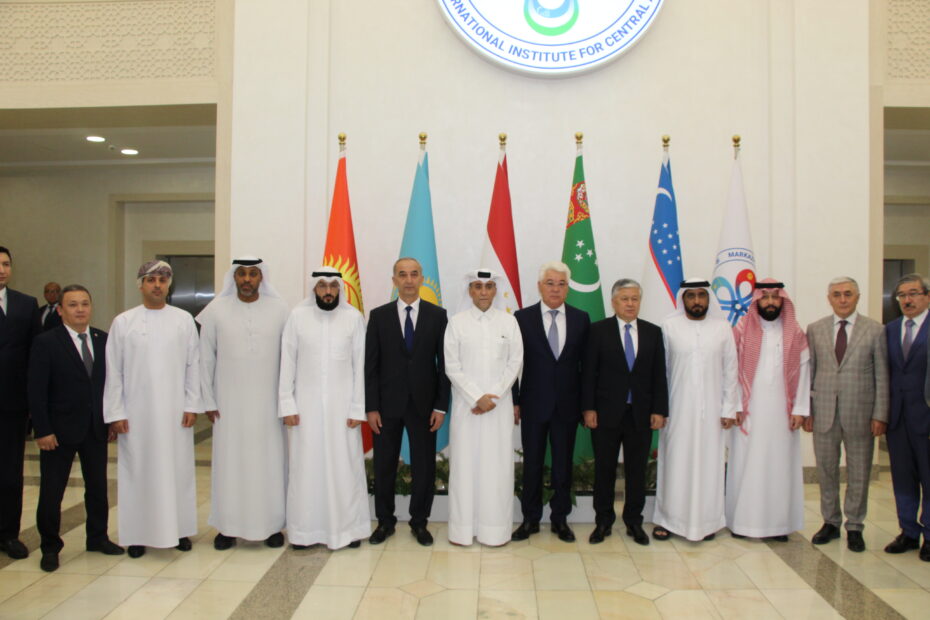Today, on the initiative of the International Institute of Central Asia (IICA), a round table themed “Central Asia and the Cooperation Council for the Arab States of the Gulf: Priorities and Prospects” was held in Tashkent.
Central Asian countries were represented by Ambassador Extraordinary and Plenipotentiary of the Republic of Kazakhstan to the Republic of Uzbekistan Beibit Atamkulov, Consul Ambassador at the Embassy of the Republic of Tajikistan Safaramin Safarzoda and Counselor at the Embassy of the Kyrgyz Republic Dastan Niyazaliev. The event was also attended by heads of diplomatic missions and senior diplomats of the Gulf countries.
The round table was attended by M. at-Turki, head of the leading governmental Research and Information Center of Saudi Arabia, representatives of national think tanks and research institutes (Academy of Sciences, IACIR, CERR, ISRS, Islamic Academy and others).
The participants discussed the results of the first Summit of the Heads of State of the Cooperation Council of the Arab States of the Gulf and Central Asian countries (GCC) held on July 19-20, 2023 in Jeddah, exchanged views on the prospects for cooperation, and identified priority areas for strengthening ties between the regions.
According to the Ambassador of Kazakhstan to Uzbekistan Beibit Atamkulov, the intensification of cooperation between states within the framework of Central Asia and strengthening the global importance of the region opens “new opportunities for expanding multifaceted interaction”. Thus, according to B. Atamkulov, Kazakhstan is ready to increase its exports to the Gulf countries in the shortest possible time by 100 commodity items worth about 400 million dollars.
“The UAE is one of Kazakhstan’s largest trading partners in the Middle East, and mutual trade turnover exceeds 700 million dollars,” said Kazakhstan’s ambassador to Uzbekistan. According to a UNCTAD report, last year alone net investment inflows to Central Asia increased by 40% to $10 billion. “We intend to systematically increase the cargo flow of the Trans-Caspian International Transport Route and bring it to 500 thousand containers per year by 2030. In addition, Kazakhstan is taking measures to develop the North-South International Transport Corridor,” Atamkulov added.
The topic of deepening energy cooperation was also touched upon. Thus, the Central Asian states have more than 30 billion tons of proven oil reserves and more than 20 trillion cubic meters of gas. This makes the region the second in the world in terms of oil and gas resources after the Arabian Peninsula.
In addition, the meeting discussed food security, diversification of the structure of export supplies of agro-industrial goods to Arab countries. Issues of interregional tourism and creation of a single visa-free tourist space “Gulf – Central Asia” and many others. The parties noted the importance of regional cooperation through the development of various dialogue platforms.
It should be reminded that at the first Summit of the Heads of State of the Cooperation Council of the Arab States of the Gulf and Central Asian countries, the President of the Republic of Kazakhstan Kassym-Jomart Tokayev outlined a number of initiatives, confirming Kazakhstan’s desire to strengthen cooperation to ensure mutual sustainable growth and prosperity.


